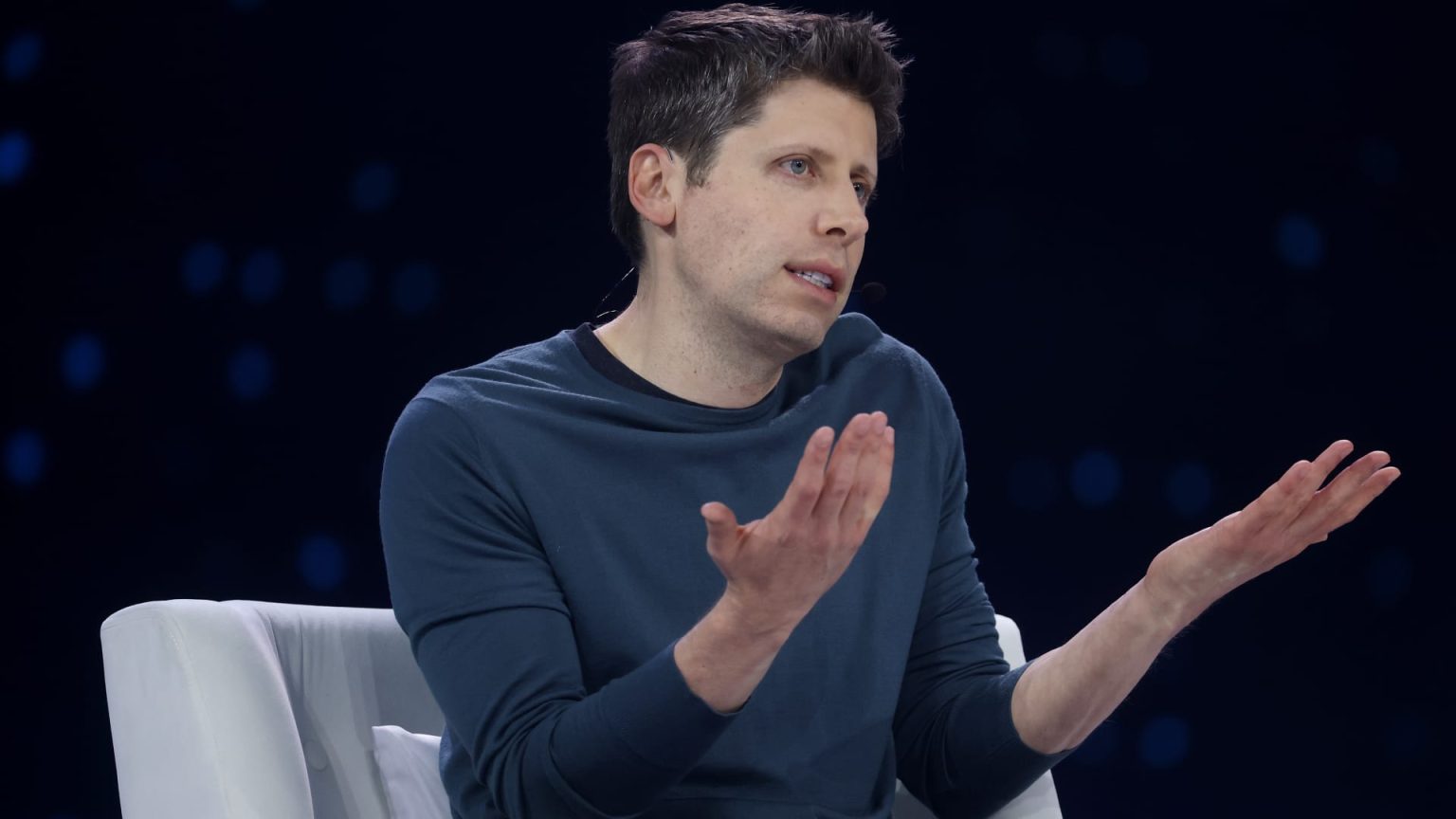OpenAI’s CEO, Sam Altman, is facing backlash following a lawsuit from hardware startup Iyo, accusing OpenAI of trademark infringement. The tensions arise from OpenAI’s acquisition of Jony Ive‘s AI startup, io, valued at approximately $6.4 billion. Altman criticized the lawsuit as “silly” and claimed that Iyo’s CEO, Jason Rugolo, had persistently sought investment from OpenAI prior to filing the suit.
| Article Subheadings |
|---|
| 1) Background of the Dispute |
| 2) Legal Implications for OpenAI |
| 3) OpenAI’s Response to the Lawsuit |
| 4) Outlook for Iyo and OpenAI |
| 5) Future Challenges Ahead |
Background of the Dispute
The friction between OpenAI and Iyo has roots in OpenAI’s decision to acquire io, a move that startled many industry insiders. This acquisition came shortly after OpenAI announced plans to pivot its business model and enhance its resource pool for AI development. The legal suit was filed by Iyo earlier this month, asserting that OpenAI’s usage of the name “io” constitutes unfair competition and trademark infringement.
The lawsuit highlights that as a small player in the tech industry, Iyo has dedicated considerable resources to establish its brand identity, especially concerning its two-letter name. Designed for innovative wearable technology, Iyo claims that the acquisition of io by OpenAI poses existential threats to its branding and consumer recognition.
Legal Implications for OpenAI
The lawsuit brings several legal complications for OpenAI, particularly as it seeks to navigate a landscape laden with regulatory scrutiny and competition. A judge has already granted Iyo a temporary restraining order, signaling the seriousness of these allegations and the court’s willingness to intervene in the dispute. This order prevents OpenAI and its associates from utilizing the “IYO” mark or any similar branding.
The case emerges amidst a backdrop of legal challenges for OpenAI, which is currently embroiled in another high-profile copyright infringement dispute with The New York Times and a separate case involving Elon Musk, a co-founder of the organization. Collectively, these challenges complicate OpenAI’s operational flexibility as it aims to secure additional capital and innovate its product offerings.
OpenAI’s Response to the Lawsuit
In response to the legal action, Sam Altman took to social media platform X, characterizing the lawsuit as “silly, disappointing and wrong.” He emphasized that the suit represented a broader array of industry challenges faced by innovators today. He shared screenshots of communication with Jason Rugolo, which included requests for investment and proposals for a potential acquisition of Iyo.
Moreover, in an official statement, OpenAI indicated its disagreement with the lawsuit’s claims, suggesting the company is actively exploring legal avenues to contest the temporary restraining order. The suit has forced OpenAI to temporarily remove its blog post announcing the acquisition deal, an unusual step that underscores the impacts of ongoing litigation on corporate communications.
Outlook for Iyo and OpenAI
For Iyo, the lawsuit represents not just a legal battle but also a fight for survival in a competitive industry. With its new product, the Iyo One wearable device, anticipated to launch shortly, the company faces heightened pressure to maintain its market positioning. The ongoing legal proceedings could either boost its visibility in the tech landscape or hinder its progress depending on the outcomes in court.
Meanwhile, for OpenAI, the ramifications of this lawsuit could influence its long-term strategy and relationships within the broader AI ecosystem. Altman’s expressed well-wishes towards the Iyo team signifies an awareness that fostering collaboration may be as important as navigating conflicts, particularly in a rapidly evolving industry.
Future Challenges Ahead
As OpenAI moves forward, it is likely to face considerable challenges not just from current lawsuits but also from emerging competitors and regulatory frameworks. The confluence of legal implications and a rapidly changing marketplace creates an environment where agility and foresight will be indispensable for continued success.
The organization’s ability to adapt its business model and navigate disputes like the one with Iyo will significantly impact its reputation and bottom line over the coming years. Industry observers will be monitoring how OpenAI responds to these challenges, as they could serve as a blueprint for other companies working in the AI sector.
| No. | Key Points |
|---|---|
| 1 | OpenAI faces a lawsuit from Iyo regarding trademark infringement linked to the acquisition of io. |
| 2 | Both companies have interests in two-letter branding that complicate their market positioning. |
| 3 | OpenAI has temporarily removed a blog post announcing the acquisition in compliance with a court order. |
| 4 | Altman criticized the lawsuit as unfounded while expressing wishes for Iyo’s success. |
| 5 | OpenAI is navigating multiple legal challenges that could hinder its operational agility. |
Summary
The ongoing legal battle between OpenAI and Iyo underscores the complexities of trademark issues in the rapidly evolving technology landscape. As both companies navigate these challenges, the outcomes could have lasting repercussions for their brand identities, market strategies, and operational procedures. This situation exemplifies the intersecting pressures facing innovative firms and the need for proactive legal and business strategies in an era dominated by technological advancements.
Frequently Asked Questions
Question: What is the basis of the lawsuit filed by Iyo against OpenAI?
Iyo accuses OpenAI of trademark infringement and unfair competition linked to OpenAI’s acquisition of the name “io,” which they claim threatens their brand identity.
Question: How has OpenAI responded to the legal action?
OpenAI has labeled the lawsuit as “silly” and intends to contest the temporary restraining order that prevents them from using the “io” branding.
Question: What product is Iyo currently promoting?
Iyo is accepting pre-orders for its Iyo One in-ear wearable device, which is designed to incorporate advanced audio technology.


